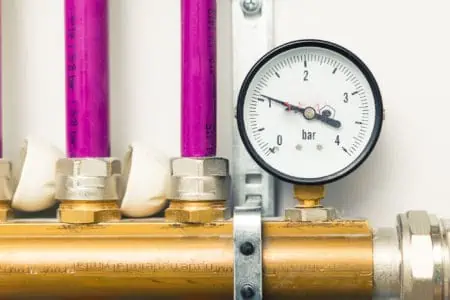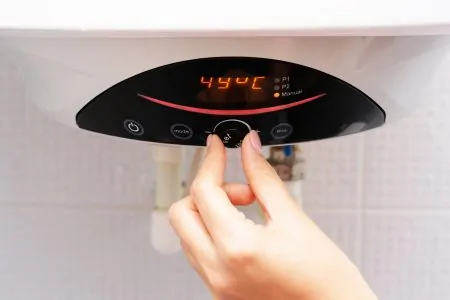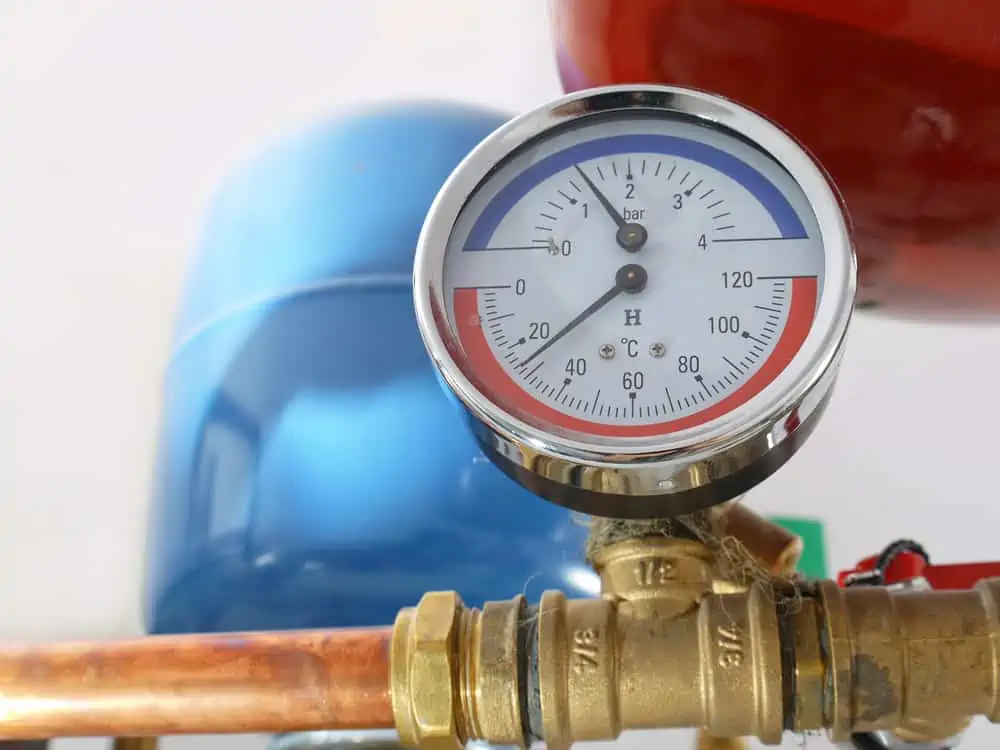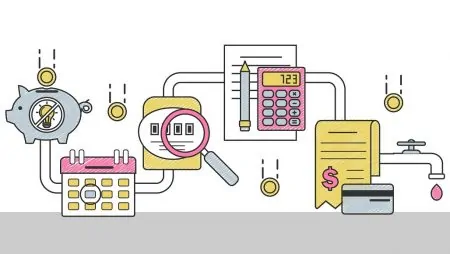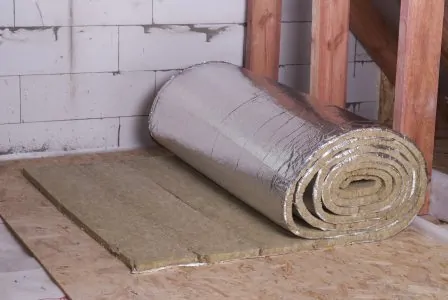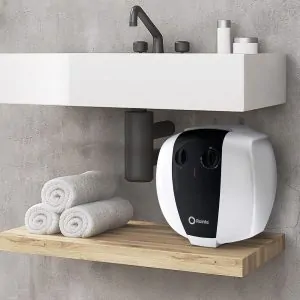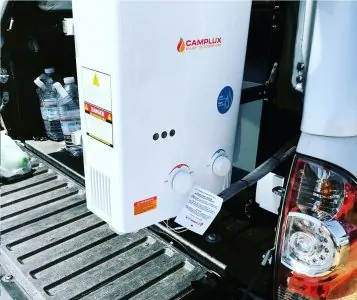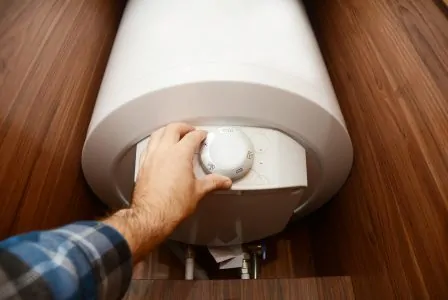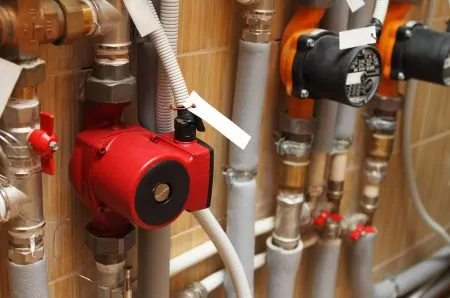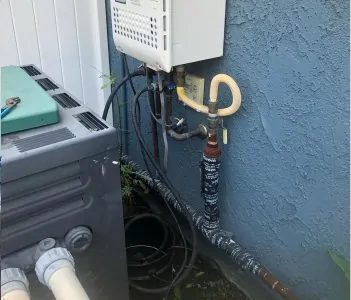Too much pressure in your hot water heater could lead to more significant problems if left unchecked. As the pressure builds, it can be difficult to contain, leading to leaks in your system.
If the pressure is too high in your hot water heater, you will get banging and clanging in the pipework. So, let’s dive into what causes too much pressure in your hot water heater and look at ways to solve the problem.
Key Takeaways
- High water pressure can cause damage to your water heater and plumbing system, leading to leaks and potential appliance failure.
- Signs of high water pressure include clanking pipes, leaking faucets, noisy appliances, and lack of hot water.
- To test for excessive water heater pressure, use a water pressure gauge and look for a reading between 40 and 60 PSI.
- To reduce pressure in a hot water tank, consider installing a water pressure regulator or consult with a professional contractor for assistance.
Is My Water Pressure Too High?
The perfect water pressure for the health of your system is between 40 and 60 PSI (pounds per square inch). If your pressure rises to 80 PSI, you need to act to bring it down.
Excessive pressure forces water through your system faster, putting strain on the pipes and connections. When that happens, leaks are inevitable.
Take Note
Some municipal water companies pump their water at 100 PSI to compensate for hilly and mountainous areas. So, while you may be at the top of the hill and receive the water at a lower PSI, those nearest the supply origin will get the full force.
Can My Water Heater Explode?
In simple terms, yes! Pressure forces the water to fill the tank at a faster rate. The water is then pushed through the system at speeds it wasn’t designed to withstand.
Think of it like blowing too much air in a party balloon. Eventually, it pops. Luckily, water heaters rarely explode, so it isn’t a common occurrence.
What Causes Too Much Pressure In Hot Water Heaters?
If you experience a sudden increase in pressure, the cause could be one of several reasons. Some are within your control, while others are caused by external pressure changes.
The tell-tale signs are the same for electric and gas water heaters. Let’s take a look at a few causes:
Expanding Water
When water heats, it expands, raising the pressure within the tank. As it increases in volume, it speeds the water flow through the system. Typically, it pushes back up the water supply line, causing leaks, but sometimes it expands in the tank.
High Exterior Temperature
When the temperature rises in your house, it affects the water pressure inside your tank. Insulation around the water tank minimizes this issue.
Your Location
Municipal water companies frequently pump water at 100 PSI to reach every customer in hilly or mountainous regions. This is not an issue in flatter areas, although water pressures occasionally change, causing problems in your water heater.
To maintain enough water pressure to tackle fires, the mains pressure near hydrants is far higher. Living near a fire hydrant could cause the pressure in your system to increase.
Broken Thermostat
Your thermostat regulates the heating elements and switches them off when you reach the desired temperature. If the thermostat is broken, it could fail to regulate the heating element, causing them to warm the water to extreme temperatures.
Additional heat increases pressure in the system. At this point, your pressure release valve (also known as a pop-off valve) should kick in and save the day.
Why Does Water Pressure Increase Overnight?
Water pressure increases overnight, leaving you with higher pressure in the morning. You don’t use water while you are asleep, meaning the pressure is contained and stabilized within the water tank.
How to Tell If the Water Pressure Is Too High
Having high water pressure is one thing, but knowing what symptoms to look for is another. What are the signs your system is running at high pressure?
Clanking Pipes
When the pressure builds, it pushes water around your system faster. This puts additional strain on the pipes, causing them to bang and clang. You might also notice excessive noise when you open the hot water faucet and then close it off.
This causes the shuddering in the pipes as they adjust to the sudden changes in pressure.
Leaking Faucets
Faucets are a prime location where leaks occur. As the water rushes around your pipework, it seeks the weakest point to escape. If you spot water pooling at the base of the faucet or wet patches underneath, these could be signs of faulty plumbing caused by water pressure.
Another sign is a dripping tap. It could just be a faulty washer, but high pressure pushes the water out of the spout even when shut off.
Noisy Appliances
High pressure is bad news for appliances, shortening their useful life because of the undue strain. If your dishwasher makes a lot of noise, it could signify high water pressure. The same is true of your washing machine.
Mechanical components wear out faster, and seals perish much quicker.
Lack of Hot Water
If your hot water runs out faster than expected, it could also signify pressure problems. Water heaters fill at a set rate based on consumption, so if it fills more rapidly than anticipated, it struggles to maintain the correct temperature.
As cold water floods the tank, it overtakes the hot water and reduces the temperature inside the tank.
High Water Bills
Increased water pressure leads to higher water bills because you use more water than you typically would when the pressure is stabilized. It also leads to higher energy bills because it takes longer than average to heat the water in the tank (if at all).
Pressure Relief Valve Triggers
When you get a pressure burst, the relief valve opens to reduce strain on the system. It is a fail-safe, designed to release strain. When the button is up, the valve has opened.
To close it, press the button back down.
Dripping Shower
Under normal loads, your shower can deal with water pressure, but a dripping shower is an obvious sign that pressure is too high. It could also be a faulty washer, but if the shower occasionally drips, it could be when the pressure is increasing.
How to Test Excessive Water Heater Pressure
So, you’ve spotted possible high water pressure, but how can you test to be sure? You need a water pressure gauge, like this YZM Stainless Steel Pressure Testing Gauge.
It’s simple enough to use, attaches to any male connector like a hose or tub faucet, and gives you accurate and reliable pressure readings. Simply screw it onto the male connector and turn the water fully on. Wait a few seconds as the gauge registers the pressure levels.
You are looking for 40 to 60 PSI. Any higher, and you have high pressure.
How to Reduce Pressure In a Hot Water Tank
Once you discover that you have a problem with water pressure, you will need to remedy the situation. Luckily, there are tools available that can help.
Water pressure regulators attach to the supply pipe just after the water meter. They regulate the flow of water, releasing pressure when needed. You may need the services of a professional to install it because soldering and brazing may be required.
Likewise, you may also need to get permission from your local municipal water supplier because they will own the pipework that enters your house.
Water pressure regulators, like this Accumeter model, are intended for use in RVs, so they will not work in a house. You will need to source the regulator from a specialist supplier, plumbing hardware store, or Amazon.
It may be better to consult with an expert contractor and get the work done properly.
FAQs
Under Pressure
When Bowie and Queen sang about being under pressure, it almost certainly had nothing to do with a water heater. However, sustained high pressure will damage your system, leading to your water heater biting the dust (did you see what we did there?).
If you think you have excessive water pressure in your hot water heater, performing a few simple steps could save you money.
